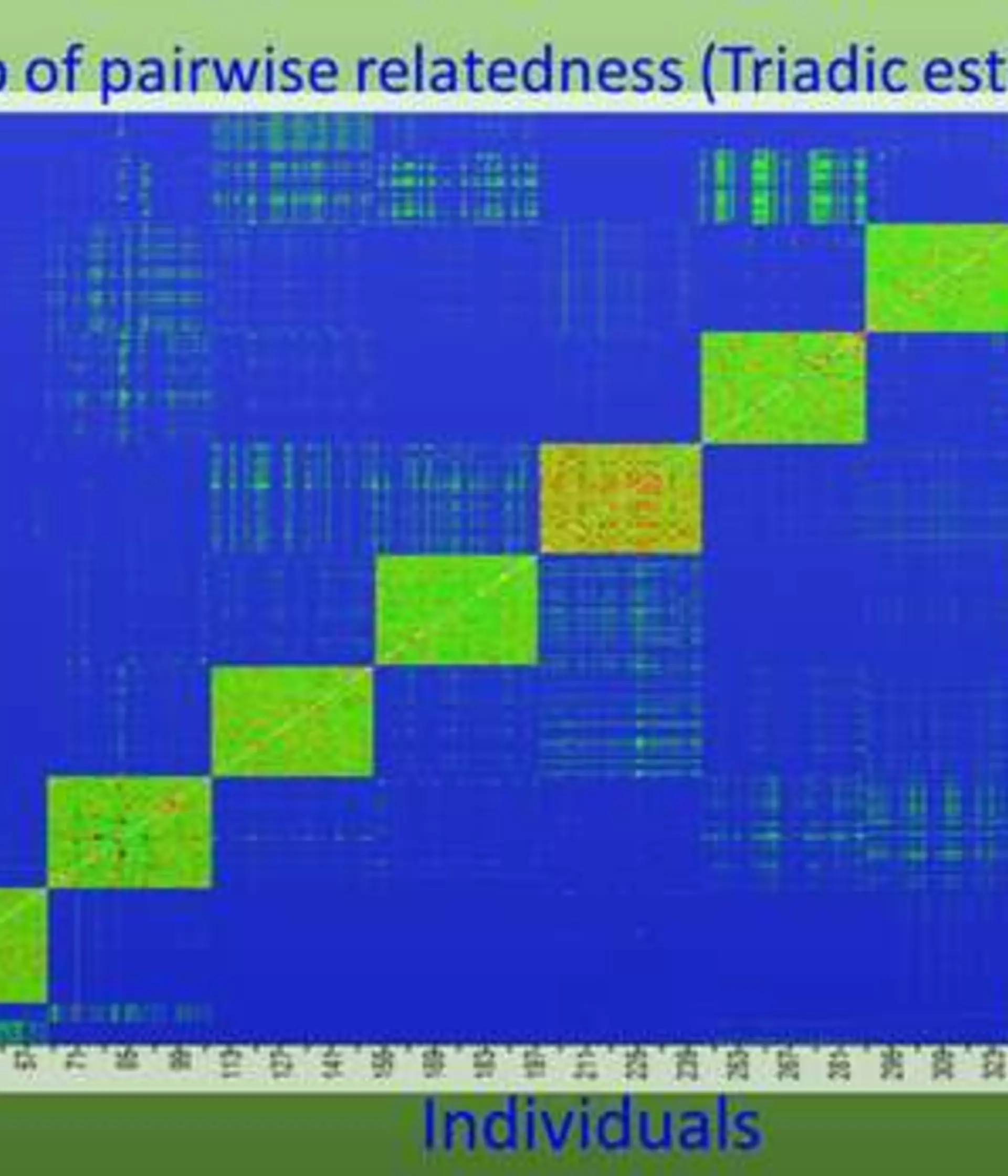COANCESTRY is a computer program that implements 7 methods to estimate the pairwise relatedness between individuals and 4 methods to estimate individual inbreeding coefficients, using individual genotypes at a set of marker loci.
Some of the relatedness and inbreeding estimators have not been implemented in any software currently available. COANCESTRY can be used, among others, in estimating relatedness and inbreeding coefficients, comparing the performances of different estimators using simulations or empirical datasets, testing for differences between groups (populations) in average inbreeding or relatedness coefficients. More details about COANCESTRY can be found in:
Wang, J. 2011. COANCESTRY: A program for simulating, estimating and analysing relatedness and inbreeding coefficients. Molecular Ecology Resources 11(1): 141-145.
The program was created (version 1.0.0.0) by Jinliang Wang in year 2002, and has been updated many times. The current version (V1.0.1.11) of COANCESTRY runs with a GUI in Windows OS. It has the following features:
- Simulating genotype data for dyads with any user defined relationships using user’s or simulated allele frequencies;
- Estimating pairwise relatedness using 7 methods, with 2 likelihood methods that could account for inbreeding and genotyping errors;
- Estimating individual inbreeding coefficients using 4 methods;
- Calculating the 95% confidence intervals of pairwise relatedness for each dyad and of inbreeding coefficients for each individual by bootstrapping over loci;
- Comparing different estimators visually by various graphs and by calculating their correlation coefficients;
- Calculating means and variances of relatedness (inbreeding) coefficients of different groups (populations), and comparing and testing the difference by bootstrapping;
- Calculating parentage exclusion probabilities for each locus to measure its information content;
- Allowing parallel computation using MPI;
- Windows GUI.
